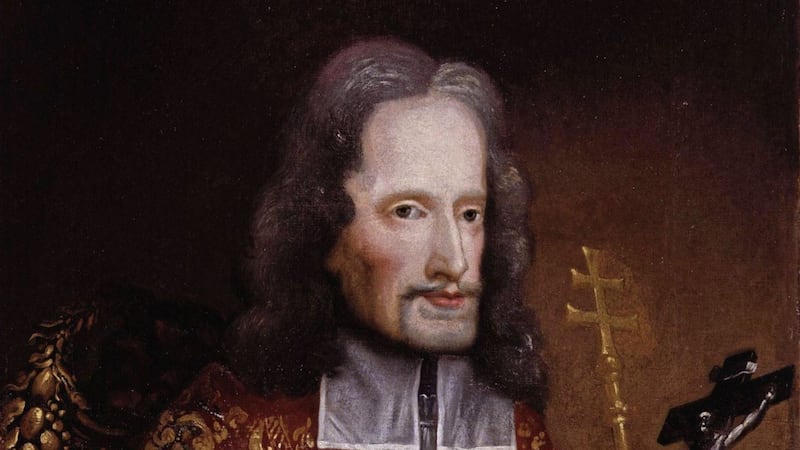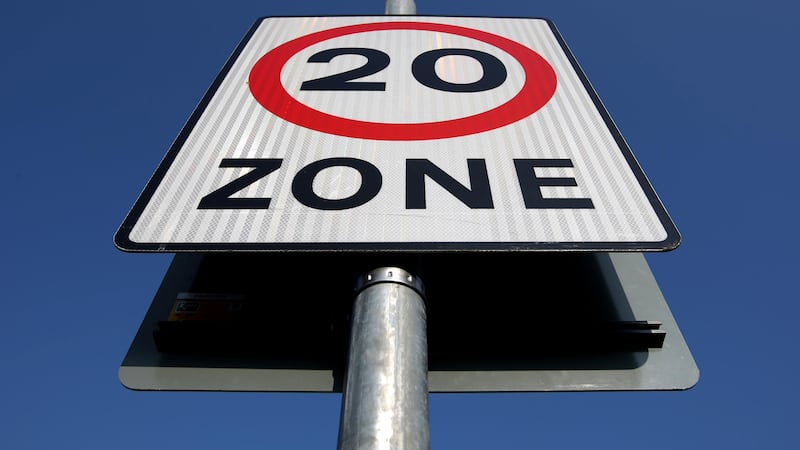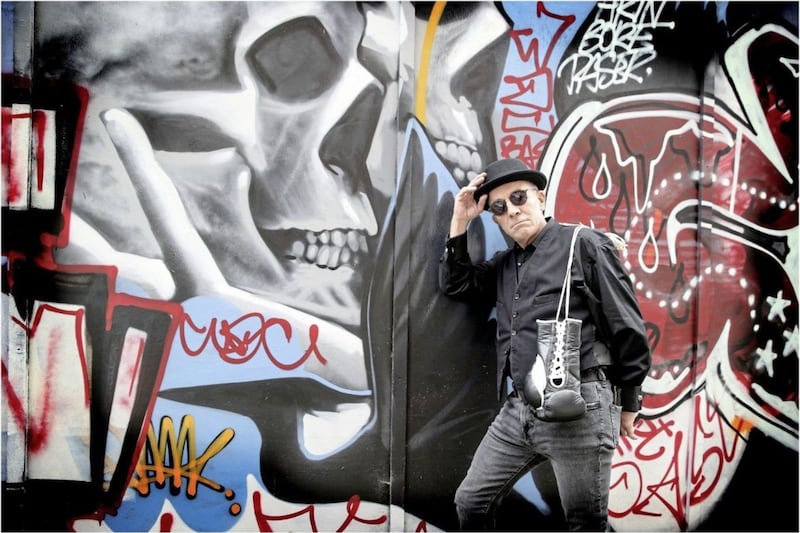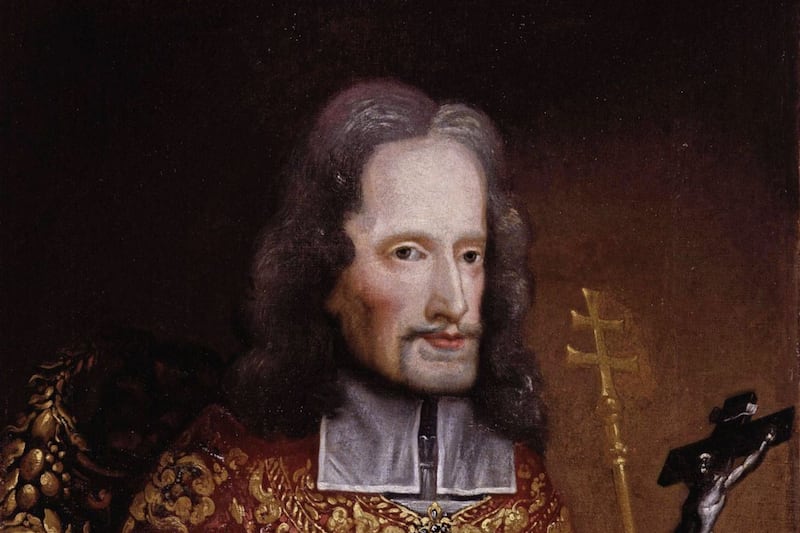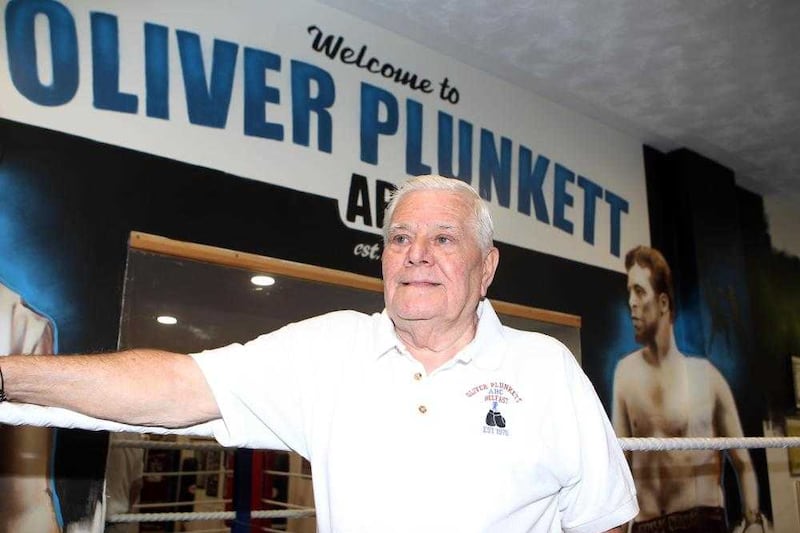TWO years ago I returned from Rome having received the pallium from Pope Francis to mark my appointment as Archbishop of Armagh.
The pallium is a simple white woollen stole decorated with crosses and edged in black so that when it drapes over the shoulders it invokes the image of a lamb being carried fondly by its shepherd. It is a symbol of the pastoral care which we, as bishops, are called to give.
I couldn't help noticing in my room at the Irish College in Rome during those days, a rather striking painting of my predecessor St Oliver Plunkett, kneeling at the gallows just before his martyrdom.
His pallium lies discarded on the ground where his executioners have flung it; in its place his head and shoulders are draped with the hangman's noose.
The stories of St Oliver Plunkett, and many other heroic people of faith in the Penal times, remind us of the courage and sacrifices of our ancestors.
I thank God for the freedom to believe and worship that we enjoy in Ireland today, and I pray that freedom shall never again be undermined or taken for granted in this country.
I say that strongly today, being conscious that the persecution of Christians remains widespread and often unreported in many parts of the world.
Just over a month ago, 28 Coptic Christians were killed in Egypt, and this followed from the deaths of 45 others who were murdered at worship on Palm Sunday last.
It is shocking to think that in 2017 thousands of Christians are still being displaced or expelled, tortured, discriminated and murdered simply because they are Christian.
Standing up for your faith, being a witness for what you believe in, is not the stuff of ancient history or another world. It is a living reality for Christians across the world today
This is happening in many countries of the world - from Iraq and Syria, to Libya and Nigeria, North Korea and Vietnam, in Pakistan, Indonesia and parts of China and India.
Research reveals that the vast majority of religious discrimination in the world today is against Christian believers, and much of this is due to the political manipulation and distortion of Islam and other faiths.
Sadly, many Catholics and other Christians in Ireland and other parts of the Western world, remain unaware or ignorant of the horrors and extent of persecution that our sisters and brothers in Christ have to suffer.
Surely we all have an obligation to be informed, raise awareness, and act in solidarity with our fellow Christians? I recommend for your study and reflection Persecuted and Forgotten?, the global analysis of the oppression of Christians compiled by the organisation Aid to the Church in Need, which is available at www.acnuk.org.
Pope Francis has often spoken about the ongoing persecution of people today because of their faith.
At his General Audience in Rome on June 28, he offered the example of the martyrs as inspiration for Christians who face open hostility and violence in their daily lives.
He reminded us that we are called to proclaim the Gospel in a world of sin and injustice, and the best way for us to do that is to be humble and poor like Jesus - not attached to riches and power, and not falling into the temptation to vengeance and violence ourselves. We win over the world by the power of love and charity.
"The only strength of the Christians is the Gospel," Pope Francis said.
"In times of hardship, one must believe that Jesus stands before us and he does not cease to accompany his disciples.
"Christians must always be found on the 'other side' of the world, the one chosen by God: not persecutors, but persecuted; not arrogant, but gentle; not liars, but subjected to the truth; not impostors, but honest."
In reflecting on the many Christians today who witness by their lives rather than give up on their beliefs, I find myself asking: "Why?"
Why would someone give their life for their faith? Clearly it is because they believe that this life on earth is not the sum total of everything.
They place their hope, as Saint Oliver Plunkett did, on another life - eternal life with God in the happiness of heaven.
They gain inspiration from words such as those found in Romans 6: "We believe that having died with Christ we shall return to life with him: Christ, as we know, having been raised from the dead will never die again. Death has no power over him any more."
Standing up for your faith, being a witness for what you believe in, is not the stuff of ancient history or another world. It is a living reality for Christians across the world today.
Even in Ireland, Catholics and Christians are entering a time when we will need the gift of courage to stay faithful to the teachings of the Gospel.
It is shocking to think that in 2017 thousands of Christians are still being displaced or expelled, tortured, discriminated and murdered simply because they are Christian
We are living in the midst of a more aggressively secular culture which insists at times on conformity and compromise with the thinking of the day, and which tends to ridicule and reject any recourse to the concept of timeless or absolute truths.
Pope Francis has spoken about another type of persecution, what he termed the "velvet-gloved" persecutions that are "cloaked in politeness": the ones that marginalise you, take your job away if you fail to adapt to laws that "go against God the Creator".
There are some who would seek to expel people of faith from public discourse and debate, or caricature our Church as being 'unmodern', 'authoritarian', 'hypocritical', 'bigoted', 'closed' to progress and personal rights and autonomy.
In this context it is important that, in love and in truth, we are not afraid to witness to our Christian faith in public, and especially these days to speak courageously on issues like the sacredness and dignity of all human life from the first moment of conception until the movement of natural death, or the uniqueness of love and marriage between a man and a woman that is open to the gift of children as fruit of that love, about the need for a fair distribution of the worlds goods, on the importance of respecting the environment and caring for the Earth, our common home.
We should not be surprised if, like Jesus Himself, we are despised at times, even in our own country.
Dr Eamon Martin is Archbishop of Armagh and Primate of All Ireland. He celebrated Mass in St Peter's Church in Drogheda, where the annual festival of St Oliver Plunkett was held on July 2.
